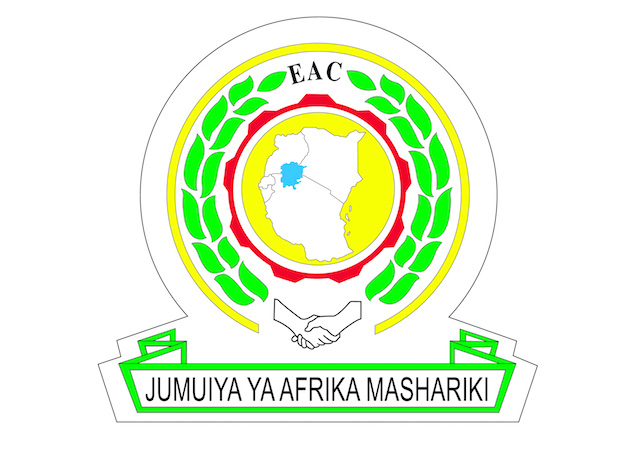
EAC Secretariat builds capacity of Women Officers in Security and the Law Enforcement Agencies (Police and Prisons) in the Partner States
EAC Headquarters, Arusha, Tanzania, 27th November 2017:
The East African Community Secretariat has embarked on conducting a series of capacity-building trainings for Partner States’ women Officers in security and the law enforcement agencies aimed at raising awareness on the provisions of the United Nation Security Council Resolution (UNSCR) 1325 specifically on the roles and requirements of women security Officers and law enforcement officers in implementing the UN Resolution at both national and regional levels.
The expected output of the capacity building is to further advance the EAC Secretariat’s role in Peace and Security interventions, and in particular strengthen the role of women and girls in Peace and Security in the regional bloc.
Addressing a 20th – 23rd November Training on Gender UNSCR 1325 on Women, Peace and Security for security and law enforcement officers from the Partner States at the Des Milles Collines Hotel in Kigali, Rwanda, the EAC Deputy Secretary General in charge of Political Federation, Mr. Charles Njoroge, said over the years he had been at the helm of the EAC Peace and Security Sector, he was yet to see women security officers visibly involved in decision making within the sector.
“This has been so despite the fact that we see the visibility of women at the national level but I am yet to fathom as what stops women in the sector breaking the glass ceiling and it is against this background that we invite you to deliberate and share experiences on the practical issues affecting the advancement of women into decision making in the sector and how this can be promoted within the context of UNSCR 1325” affirmed Mr. Njoroge.
The Deputy Secretary General informed the trainees that in 2000, the United Nations Security Council formally acknowledged through the creation of Resolution 1325 the changing nature of warfare, in which civilians were increasingly targeted, and women continue to be excluded from participation in peace processes. “The UNSCR 1325 addresses not only the inordinate impact of war on women, but also the pivotal role women should and do play in conflict management, conflict resolution, mediation and sustainable peace”.
The EAC official disclosed that the region had developed a Framework for the implementation of the UN Security Council Resolution 1325 and that during the course of the training, it will be shared with the participants whose roles form a critical mass in the process of its implementation.
He urged the participants to pay great attention to the deliberations and come up with proposals that would facilitate placing women at the centre of decision making as victims and also as persons who play a critical role in amelioration of conflict situations and recovery effects in the region.
The Deputy Secretary General reiterated that there were also a number of initiatives made both within the Defence and Interstate Security Sectors at the EAC Secretariat, which include, among others, the Conflict Prevention Management and Resolution Mechanism, the Early Warning Mechanism; and Mediation Processes. “A number of these need your greater involvement and all this is being done to make the EAC Region a better place to live in”.
At the same occasion, Mr. Alex Mutamba, on behalf of the Permanent Secretary in the Ministry of Foreign Affairs, Cooperation and East African Community said that under the EAC framework, security is an area of cooperation and it is therefore through strengthening security cooperation that the EAC regional integration projects can be protected and continue to bring more growth and development to the Partner States.
He noted that security was a very sensitive sector and a serious business that the Partner States must invest in. “The training of Women Officers in peace and security is recognized as a human capital investment of which it’s expected outcome is meant to support the regional integration initiatives” concluded the Rwanda official.
Notice to Editors
This activity is funded under African Peace and Security Architecture (APSA) Support Programme. As a regional requirement, the EAC is committed to the implementation of UNSCR 1325 as a mechanism of strengthening women’s participation and involvement in the promotion of peace and security within the context of conflict prevention and resolution, eradicating sexual violence and ending impunity in conflict situations. The EAC Regional Framework on UNSCR 1325 sets out what the EAC will do at the level of the EAC Secretariat and in partnership with Partner States, to integrate a gender perspective into its peace and security, efforts to protect women and girls’ human rights, and promote their participation in conflict prevention, management and resolution.
Aim of Training Women in Peace and Security
The immediate aim is to raise awareness of EAC Women Security Officers on the UNSCR 1325; the existing Regional and International Instruments; so as to build a formidable force of women officers trained on Women Peace and Security. The outcome of this training will be the ability of trained officers to competently mainstream the EAC peace and security interventions and enrich the EAC Peace and Security Instruments including the EAC Strategy on Regional Peace and Security; and competently participate in the regional Peace and Security interventions and initiatives.
Participation
Participants in the training included Partner States’ In-service Women Officers from the disciplined forces and law enforcement such as the Military, Police; Prisons and Correctional Services, among others. Staff from the EAC Organs also participated in the Training.
-ENDS-
For more information, please contact:
Mr Owora Richard Othieno
Head, Corporate Communications and Public Affairs Department
EAC Secretariat
Arusha, Tanzania
Tel: +255 784 835021
Email: OOthieno [at] eachq.org
About the East African Community Secretariat:
The East African Community (EAC) is a regional intergovernmental organisation of five Partner States, comprising Burundi, Kenya, Rwanda, Tanzania and Uganda, with its headquarters in Arusha, Tanzania.
The EAC Secretariat is ISO 2008:9001 Certified
